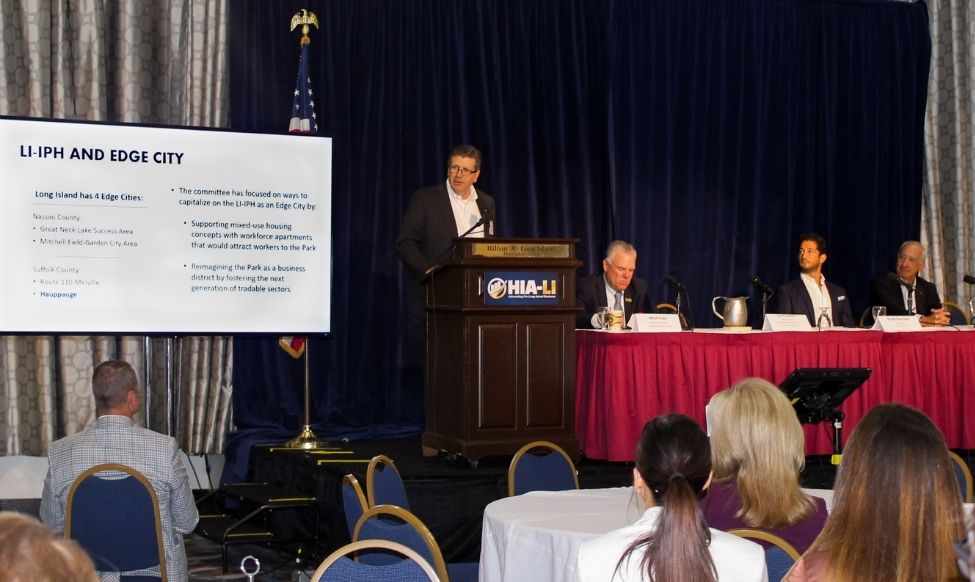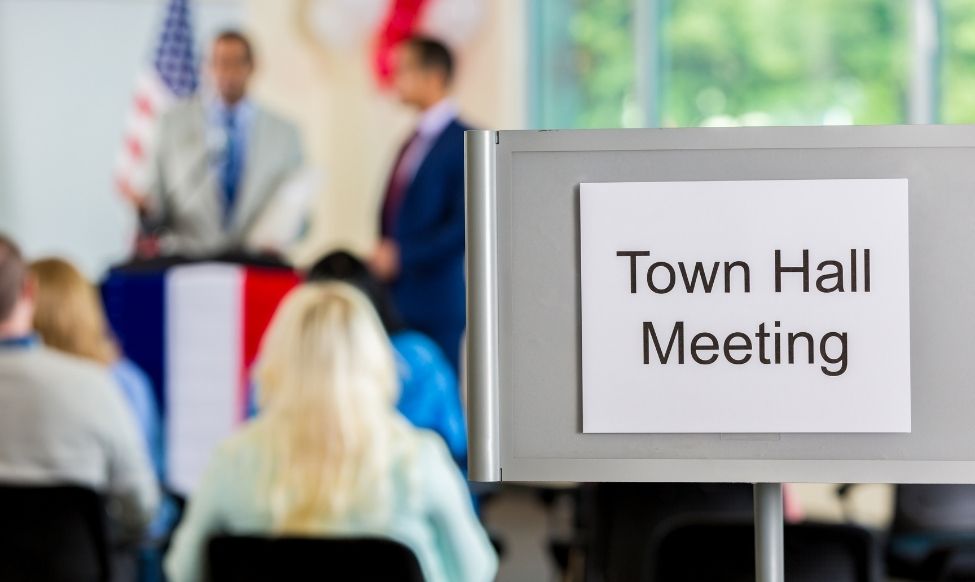The addition of more nonstop flights at Long Island MacArthur Airport in Islip holds the potential to generate more than $1 billion in new airport revenue annually, according to the analysis of a new survey of 504 Long Island businesses.
The Long Island MacArthur Airport Survey was designed to examine the current and future travel needs of the Long Island business community. Conducted between August 3, 2021 and September 6, 2021, the survey was sponsored by Hauppauge-based HIA-LI, one of Long Island’s largest business advocacy organizations. The survey was conducted by Campolo, Middleton & McCormick, LLP, a law firm headquartered in Ronkonkoma.
The surveyed firms reported annual travel budgets ranging from under $5,000 to more than $20,000. These companies currently spend an average of 36.2 percent of their overall travel budgets at Long Island MacArthur Airport. In dollar terms, this equals about $1.9 million out of their average, full-year, travel budgets of $5.2 million.
If the airport were to add additional nonstop flights, however, respondents said that this percentage would go up to 78.8 percent, a 218-percent increase. Their projected annual spending at the airport would rise to $4.1 million.
Grouping these businesses together as representative of Long Island’s business sector as a whole, an analysis of the survey results also looked at the potential for increased usage of Long Island MacArthur Airport by Nassau and Suffolk firms.
The analysis projected that Suffolk County has some 61,076 businesses with travel budgets. Applying the conclusions reached from the survey, these Suffolk firms would boost their spending at the airport by up to $532.2 million if more nonstop flights were added.
Nassau County is home to as many as 60,919 companies with business travel budgets. Applying the responses of surveyed companies to the Nassau business sector as a whole, firms in the county would spend up to $530.8 million more at Long Island MacArthur Airport if the airport were to add additional nonstop destinations.
Taken together, if the airport expanded its number of nonstop flights, the two counties hold the potential to generate as much as $1.1 billion in revenue.
“This survey clearly demonstrates Long Island MacArthur Airport’s significant untapped value,” said HIA-LI President and CEO Terri Alessi-Miceli. “Long Island business, government, and civic leaders need to join forces to expand the number of nonstop flights offered by the airport.”
“Long Island MacArthur Airport already stands as an important economic development asset for Long Island,” said Richard Humann, PE, who is President and CEO of H2M architects + engineers and serves as Chairperson of the HIA-LI board. “A key goal of this survey is to help the airport build momentum toward expanding its schedule of nonstop offerings, and that’s how we’ll put it to use.”
“The potential revenue that stands to be made from adding more nonstop flights at MacArthur Airport is staggering,” said Joe Campolo, Immediate Past Chair of HIA-LI, Managing Partner at Campolo, Middleton & McCormick, LLP, and a member of the Town of Islip’s Long Island MacArthur Airport Advisory Board. “My team and I spearheaded this survey to demonstrate the power and cohesiveness of the Long Island business community. Together, we can effectuate this monumental step forward for our region and economy.”
“HIA-LI is a tremendous positive force and advocate for economic prosperity for all of Long Island,” said Town of Islip Supervisor Angie Carpenter. “They understand that Long Island MacArthur Airport represents an important asset and an economic engine for our entire region both now and in the future. We are so grateful to HIA-LI members, HIA-LI President and CEO Terri Alessi-Miceli, and the organization’s Immediate Past Board Chair Joe Campolo, Managing Partner at Campolo, Middleton & McCormick, LLP,” she stated.
“Around the country we see chambers of commerce, convention and visitors’ bureaus, local governments, regional economic development associations, universities, and elected officials coordinating with their airports in a cooperative and unified manner, pledging support and frequently marketing dollars to ensure the success of new airline service and the ‘Fly Local’ use of airport assets,” said Airport Commissioner Shelley LaRose-Arken.
“Business travelers much prefer nonstop air travel,” said Bob Isaksen, Market Executive for Business Banking at Bank of America and an HIA-LI board member. “We want this survey to send a strong message to airlines about the payoff they’ll receive by deepening their commitment to Long Island MacArthur Airport.”
The Town of Islip owns and operates Long Island MacArthur Airport, which serves about two million airline passengers a year.
For a copy of the survey and an executive summary of the results, click below:
ABOUT LONG ISLAND MACARTHUR AIRPORT
Long Island MacArthur Airport customers enjoy flights on three major US domestic air carriers: American Airlines, Frontier Airlines, and Southwest Airlines. Together these carriers currently provide service to eleven cities nonstop and connect to hundreds of destinations worldwide. The airport serves 1.3M passengers annually and employs 6000 people, with a $16.1M annual operating budget and an economic impact of $600M to the region and local economy. For more information, go to https://MacArthurAirport.com.
HIA-LI. (2021, October 12). SURVEY OF OVER 500 LONG ISLAND FIRMS SHOWS THAT LONG ISLAND MACARTHUR AIRPORT COULD MORE THAN DOUBLE BUSINESS AIR TRAVEL BY ADDING MORE NONSTOP FLIGHTS. PROJECTING SURVEY RESULTS ISLAND-WIDE, AIRPORT COULD GENERAT $1.1 BILLION IN ADDED ANNUAL REVENUE [Press release].








